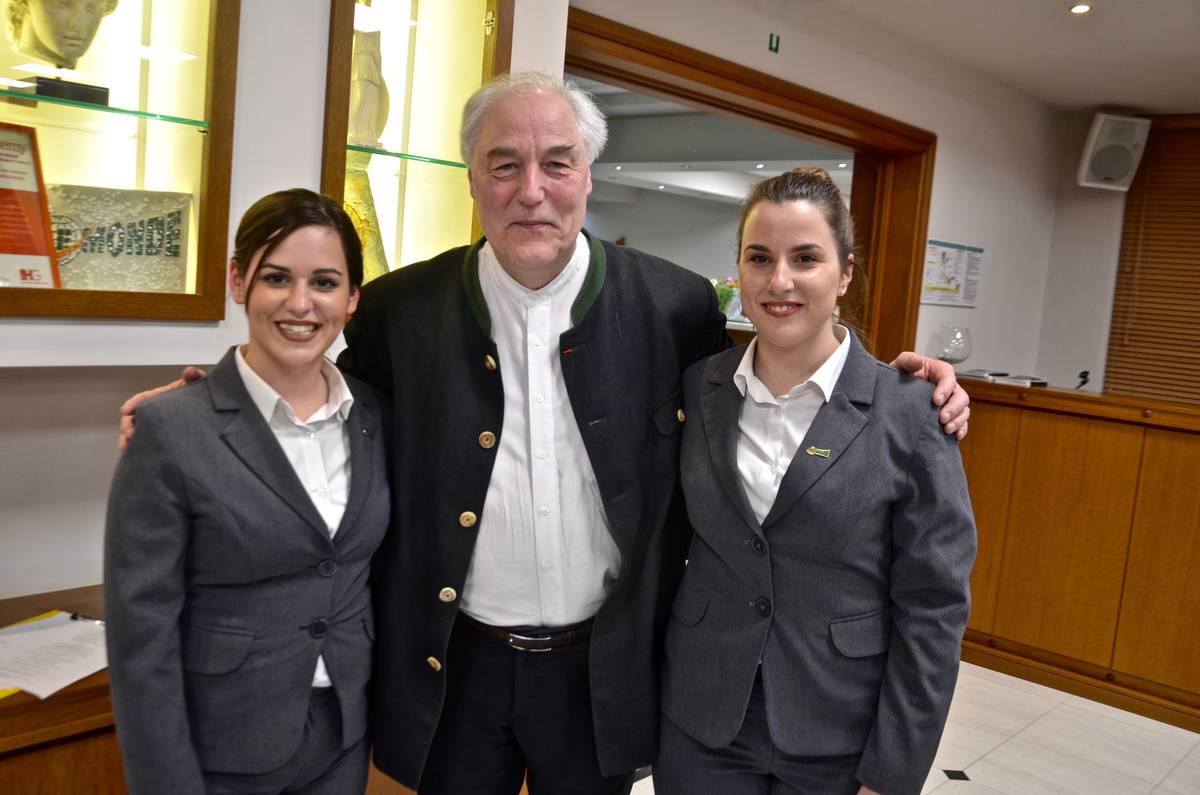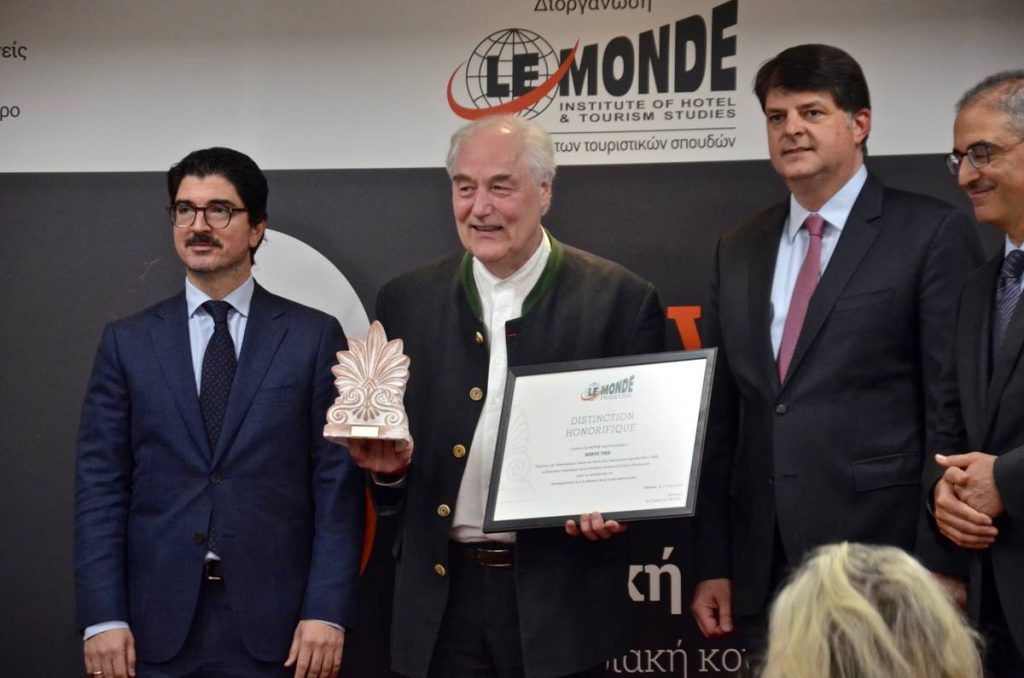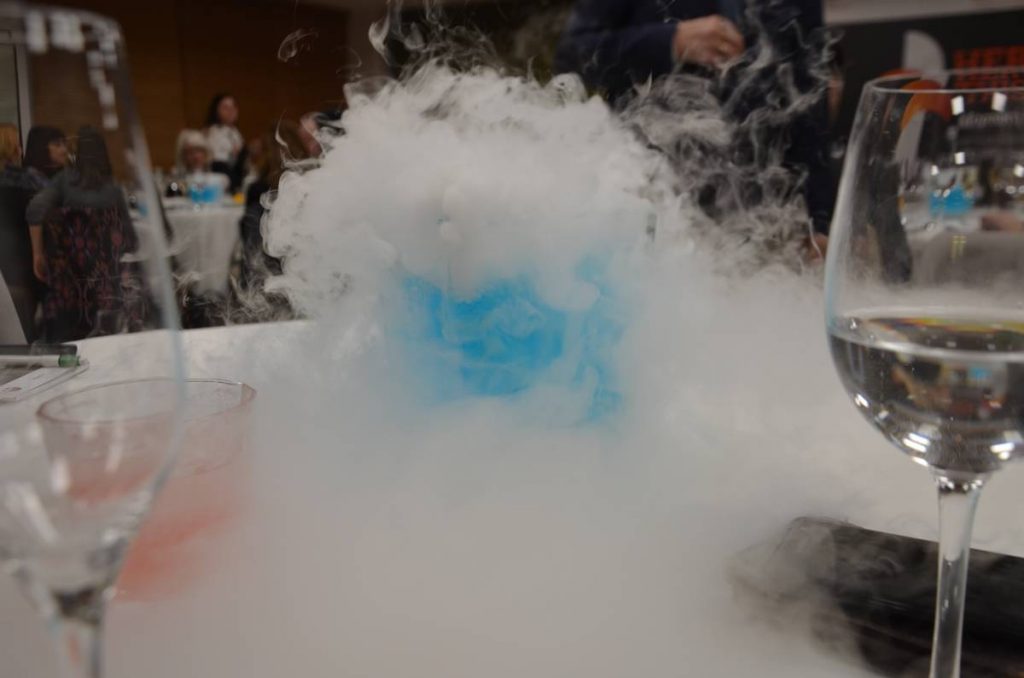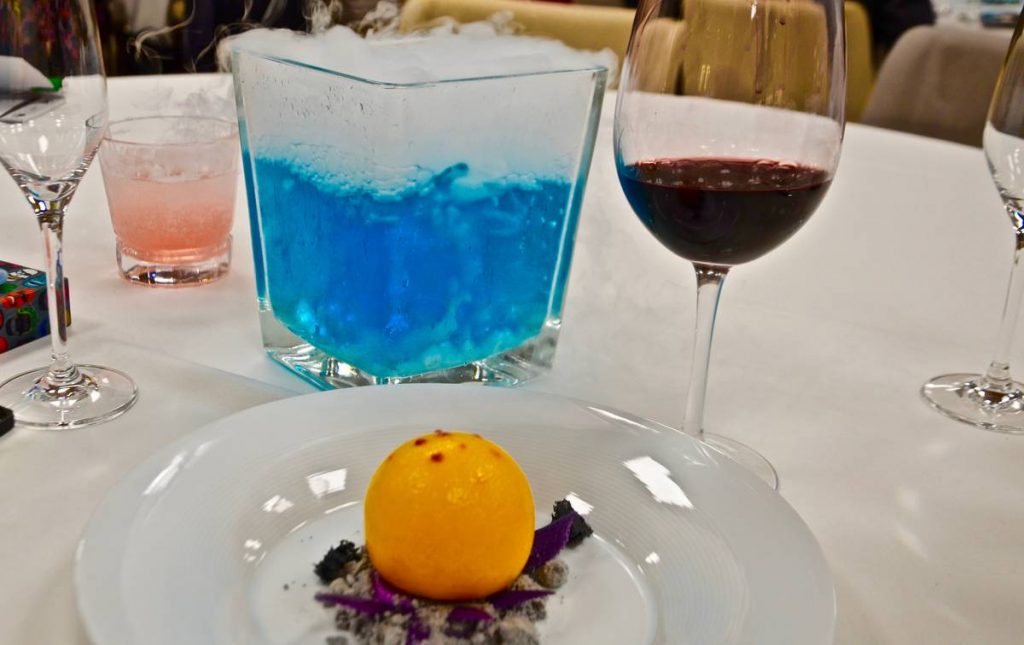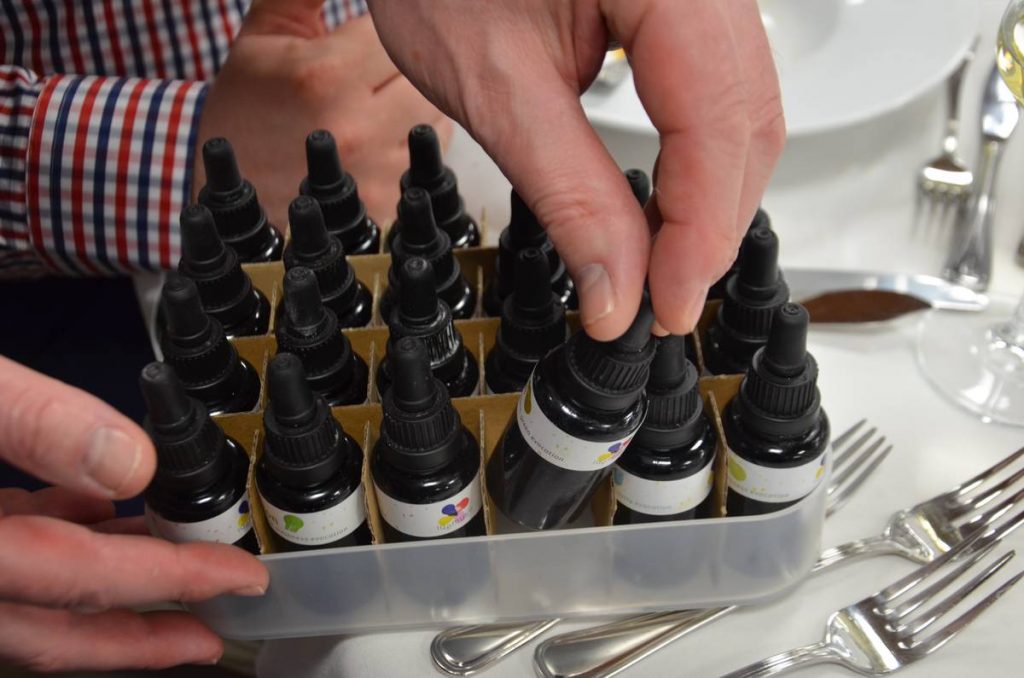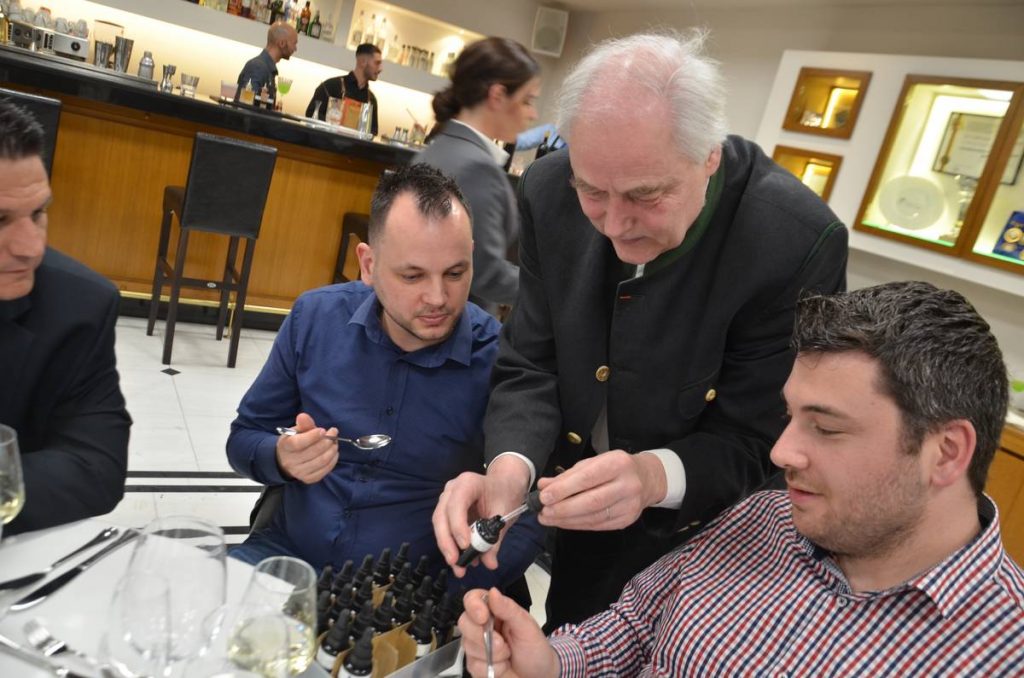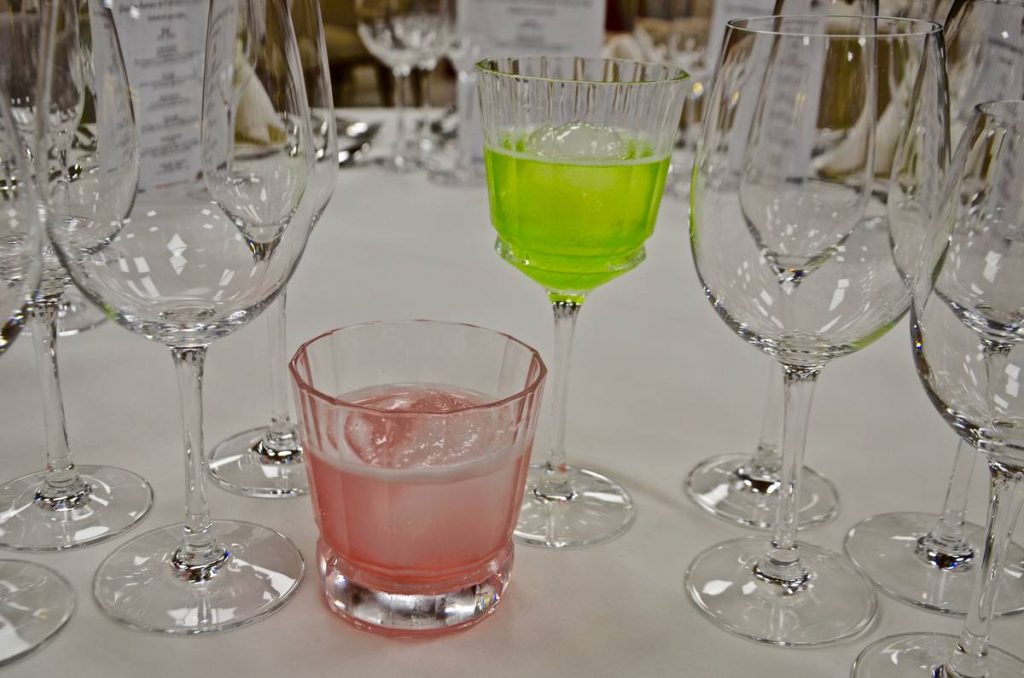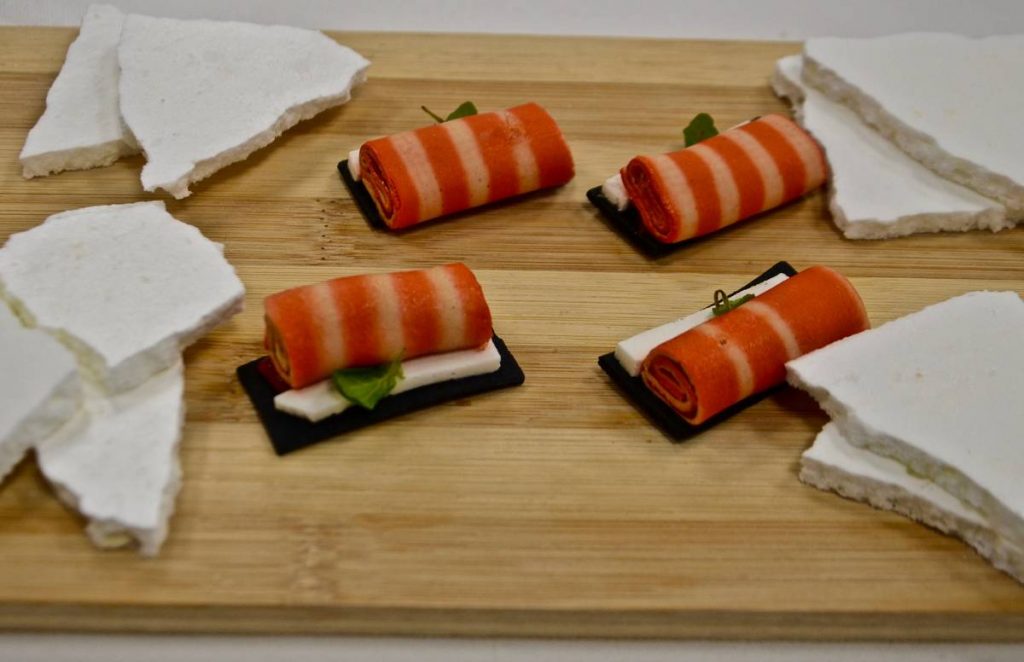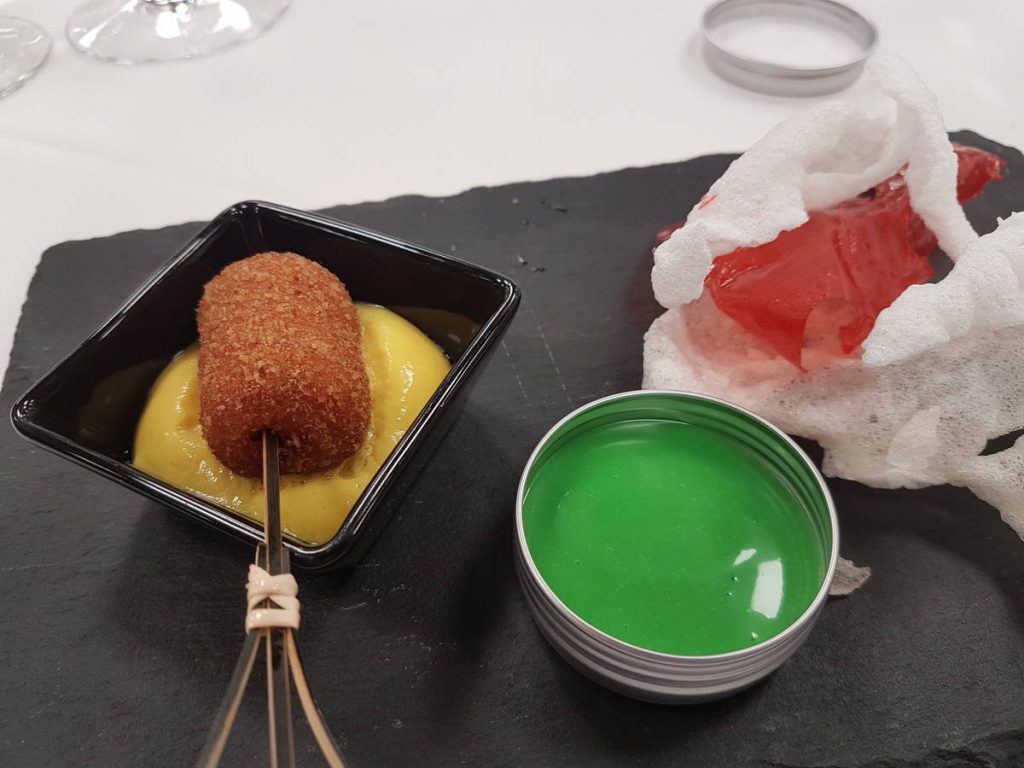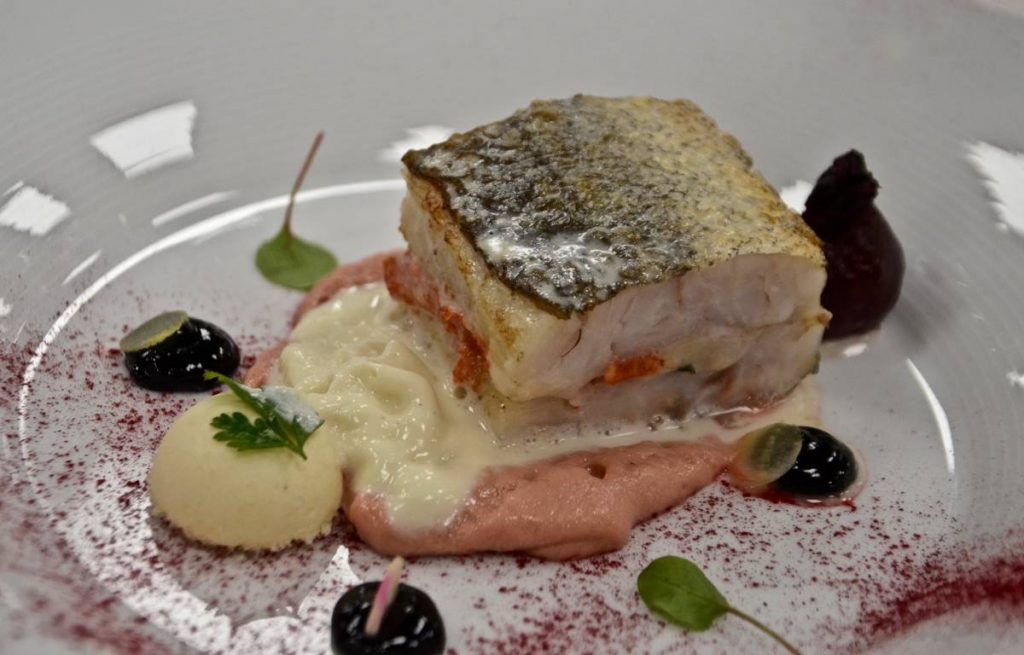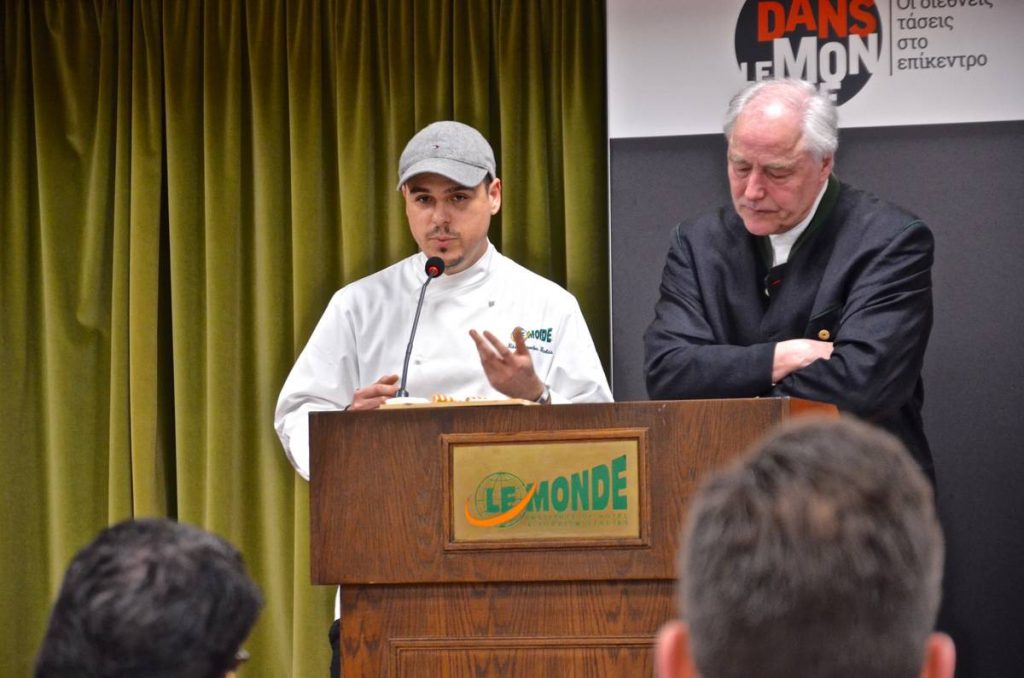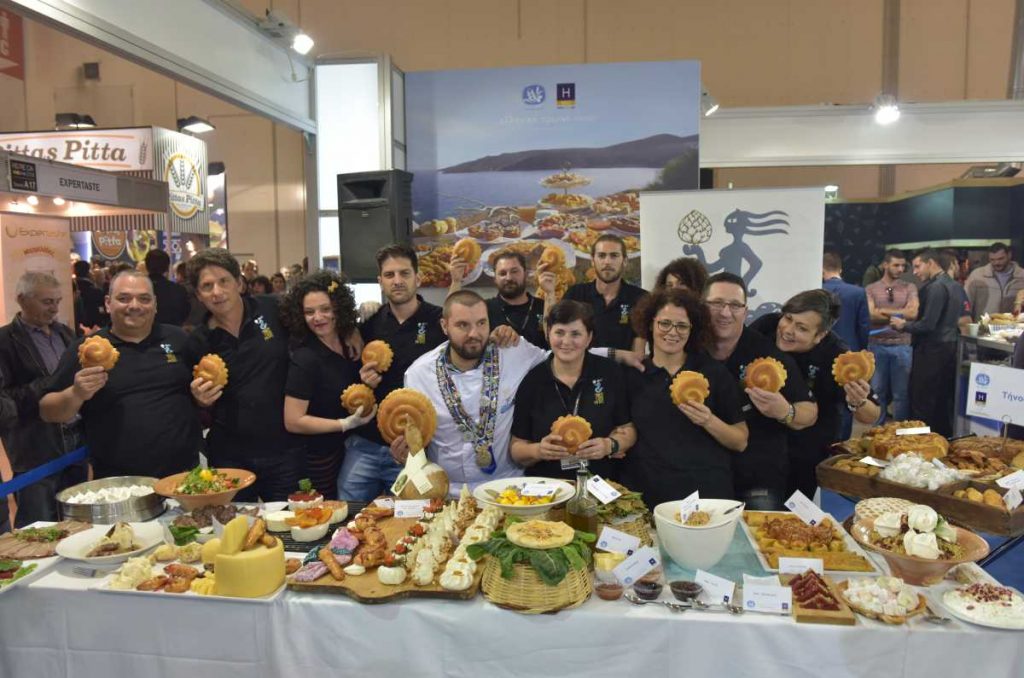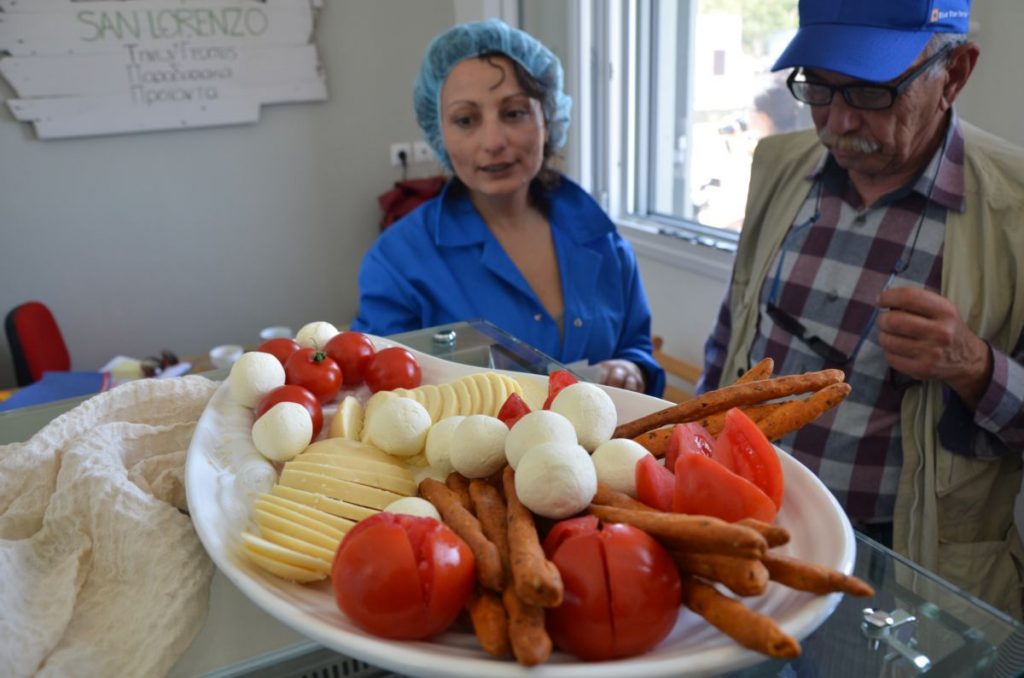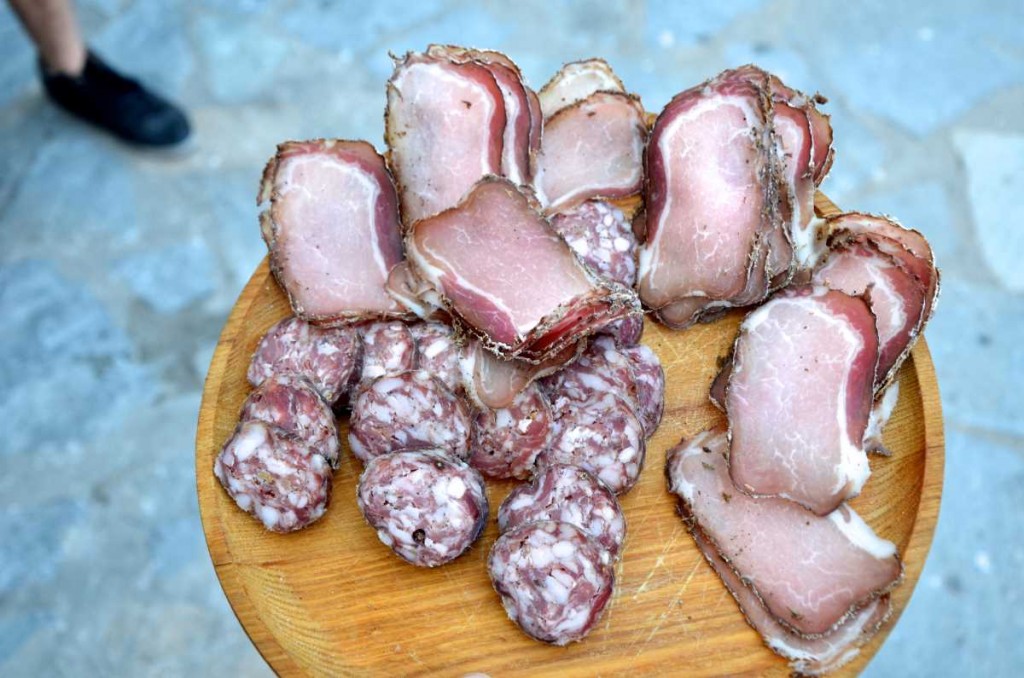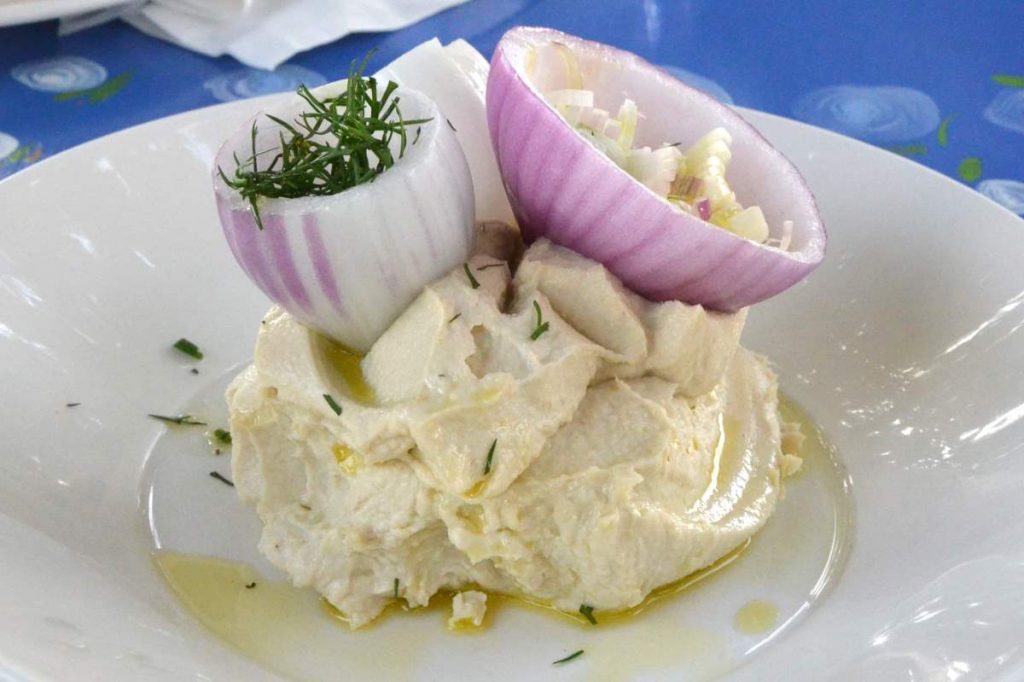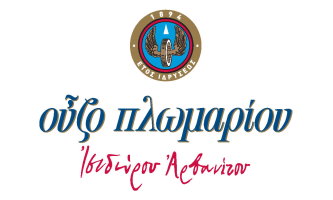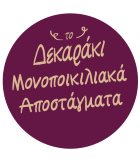On Friday 16-3-2018, the school of gastronomy Le Monde awarded the famous physicochemist Herve Tis (Hervé This) and hosted a dinner in his honor during which dishes were tasted, cooked by the teachers of the school Efthymios Kalosakas and Nikolaos Nikolakopoulos, inspired and prepared according to the principles of his kitchen note à note.
Hervé This co-founded it in 1988 with Hungarian chemist Nicholas Kurti Molecular Cuisine (Molecular Gastronomy) and is the one who named it "Molecular cooking" and "molecular cuisine", a supporter of the modernization of cooking techniques since 1980. Hervé This, is also the creator of trends «Culinary construvism» and Abstract cooking.
Hervé This's many awards and distinctions. Head of the INRA Group of Molecular Gastronomy at AgroParisTech, Scientific Director of the Foundation Food Science & Culture at the French Academy of Sciences and Head of the Human Food Section at the French Academy of Agriculture, Member of the Belgian Academy of Sciences and recently a member of the Academy of Alsace. He is also the Scientific Advisor of the French edition of Scientific American and the author of many books on Molecular Gastronomy.
In 1994 he proposed the "note à note Kitchen»As the new trend in gastronomy, supporting it with speeches and presentations around the world. From what we understand from the presentation of his cuisine, Hervé This sees food as a synthesis of ingredients, proteins, sugars, etc. in the form of powder and flavorings extracted from natural raw materials, which he creates in his laboratory in Paris and, which then after 10 years of effort, are produced by a company that already markets them.
His arguments for this complete deconstruction of the kitchen and the conversion of agri-food products into powders and aromas were not at all weak, without implying that they were absolutely convincing.
"Products consist on average of at least 70% water, whether they are fruit or meat. The cost of transporting them is huge, costly and of course with large losses, "we actually transport water", he comments. The cost of storing products in refrigerators, for refrigeration or freezing, is also very high. Transportation and cooling - due to the energy used - have devastating effects on the environment. The world is growing exponentially. In a short time our planet will exceed 10 billion inhabitants. How will we feed them? ”
He therefore proposes to stop the transfer of food from one part of the planet to another and the reduction of nutrients and flavors into powders and liquids, which are easily transported. In fact, he did not hesitate to take his bottles out of his bag, as a magician, and to go from table to table and sample his treatise for us.
For the record let us recall that the 1988 ο Herve This together with Nicholas Kurti they officially created "Molecular Gastronomy", ie the scientific branch that investigates the mechanisms of phenomena that take place during cooking and concerns scientists-chemists and physicists. Around the same time, This and Kurti promoted what is called "molecular cooking"(The name was given later in 1999), that is the modern cooking technique based on new "tools" coming from laboratories, such as liquid nitrogen or centrifugation. The idea was to modernize culinary techniques, so that the culinary art becomes more active and active. The new technique was the source of the development of a new gastronomic artistic trend called "molecular cuisine».
In 1994, Hervé This is once again at the center of developments, presenting the revolutionary note a note Kitchen: An innovative idea that offers the ability and freedom to chefs to create the taste, shape, aroma and nutritional value of a dish from scratch, using only pure chemical compounds.
After the theoretical presentation of his cuisine, the guests were invited to taste his creations, starting with the cocktails prepared especially by the teacher of the school Giannis Vlachos with the method «Note à note». The green was made with glucose, malic acid, green apple and pear essential oils and pistachio dye while the pink was made with glucose, citric acid bitter almond and cherry aroma.
The first dish «Note à note» with the designation recall (reference) was a composition of a thin yogurt styrofoam reminiscent of both feta and a beetroot, mushroom and earth flavored ravioli.
Sausage in mustard, cucumber cream in liquid gelatinous form, with a very penetrating cucumber taste. All the "note à note" delicacies were created especially for this event by the teachers of the Le Monde School, Efthymio Kalosaka and Nikola Nikolakopoulos, according to the methodology of Hervé This with which they have been familiar for a long time now.
The constant tasty surprises and the inflated questions from the dishes «Note à note», followed by the reassuring and absolutely delicious flavors of conventional dishes of the chef-professor Michalis Dounetas of the school, such as the first (cod with mashed potatoes, beetroot and black garlic) and the main course (lamb in olive crust with eggplant puree).
Conversation with Hervé This
In a private conversation with Hervé This, at our table, I asked him some questions and queries, which I can not say were adequately covered:
At the moment the battle for biodiversity, for his cooking local and fresh, but even for the production or not of genetically modified agricultural products, his proposal completely eliminates the products and reduces them to powders and perfumes!
Who will control the correct conversion of products into powders. Who will control the production, the prices?
We know the implications of monoculture of agricultural products, in countries that eventually become even more dependent on the world market?
If an agricultural product is reduced to its constituents, the its recomposition, will it have the same effect in terms of nutrition? Do the "identity codes" of each food refer only to its ingredients or do they have other information, such as place, climate, soils and where they will be lost, so we can never make the same food again?
If peoples and countries are led to monocultures from which powders and perfumes will be produced, what will happen? meaning of existence, when agriculture and animal husbandry, like traditional food, contained for centuries a series of symbolic acts and rituals that defined the culture of their daily life?
These and many more were answered by His Excellency Hervé This with the argument of the priority of solving the problem of world hunger. And that ultimately attempts to promote through the kitchen «Note à note» and become known through his logic fine dining as it is "The ground is more suitable for gastronomy journalists", as he commented with a smile.
This pioneering, but also shocking experience, brought to us in Greece by the Le Monde school, within the framework of open horizon in global trends and in the doctrine of future is here, I overcame it quite easily and less traumatically. Two days earlier in the same room I had the opportunity to watch and even participate in another experience in a completely different direction.
The cuisine of Place and Time
On Wednesday, March 14, 2018, we were gladly hosted by the school Le Monde my boss, as the founder of the Greek Gastronomy Guide and inspirer of the institution of Gastronomic Communities, as well as the George Amoiralis, vice-president of the Association of Health Interest Stores of Tinos, who presented to the students of the school a very interesting lecture on "Gastronomic communities of Greece - The gastronomy of Tinos".
Having mentioned in general the importance of such collective efforts, in order to upgrade both the gastronomy and the tourism of the country, I presented the Tinos Food Paths to the students who sucked with longing and satisfaction these collective initiatives. George Amoiralis referred in more detail to the efforts made in recent years by him, but also the other young businessmen of Tinos, who have gathered in an association with a common vision and goal of promoting the island as a gastronomic destination.
And of course the focus of the discussion was the efforts of the Tinians to highlight their local varieties, their cheeses -rock, round, malathion, gruyere, kopanisti, kariki, their cold cuts -louza, sausagethe capers, the tomatoes, the Komi artichokes, their honeys, their wines and of course their local recipes.
The students of the school had the opportunity to talk to the lecturers and ask their questions, which of course were dominated by the concepts of fresh and local.
Le Monde School
The school Le Monde I met him by chance in 2003 when the book of the deceased fell into my hands Alexandrou Giotis -in collaboration with them Efthymio Kalosaka and Achilleas Panagouli, all teachers of the school- Greek Culinary Tradition. And I remember how impressed I was because at that time to challenge, even indirectly, French cuisine - at least at the educational level - was an insult. Since then, I was constantly informed about the publications of the school and its initiatives for the promotion of Greek gastronomy.
The Le Monde School continues to be responsible to her students and in Greek gastronomy in general, posing the global problems of global nutrition, global trends and international innovations before us in the best way. It is up to us to judge the positives and the negatives, the creative and the destructive that exist in each new discovery, the dangers and the opportunities to proceed with compositions. In other words, he gave it to us as a school food for thought and that was very important.

